Highly recommended rehab! I completed the entire program and been 2 years sober now!
About Asana Recovery: Drug & Alcohol Rehab In California
These programs are for adults with moderate mental health or substance use issues. The programs work with HMO and PPO insurance policies. That includes many of the major companies like Cigna, Aetna, and Magellan.
The PHP offers intensive outpatient therapy without the need to spend the night. You’ll be in a structured environment five days a week from 6-10 hours per day. To participate in the PHP, you must be medically stable and not require 24 hour supervision. You can choose to live in one of the sober living houses near the beach while attending the program.
There are many treatment modalities in the PHP. These include evidence-based therapies such as cognitive behavioral therapy (CBT) and dialectical behavioral therapy (DBT). They also use holistic practices such as yoga. Your treatment plan is customized to your unique situation.
The plans usually include individual and group therapy as well as family therapy if appropriate. There are psychiatric consultations available for medication management. Therapy helps you understand and manage any co-occurring disorders you may have such as depression, anxiety, or bipolar disorder. Managing your co-occurring disorders is an important part of the recovery process.
The IOP is an outpatient program that’s good if you’re working on a smaller budget. You can attend the program but still live at home and work during the day if necessary. If you’re able to manage your daily routines and responsibilities but struggle with substance use or a co-occurring disorder, their IOP may be a good fit.
The program entails about 10-12 hours of therapy a week. It also includes counseling, therapies, and medical support. The IOP also addresses both substance use and co-occurring disorders.
One former client remarked that the program “changed my life.” Another said they would highly recommend the program to anyone in need.
Facility Overview
Latest Reviews
See AllRehab Score
Gallery
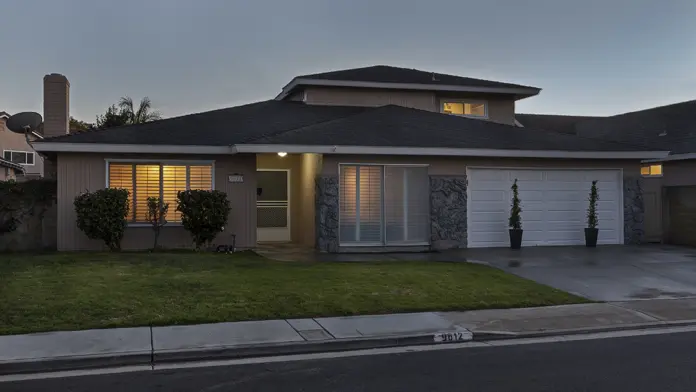
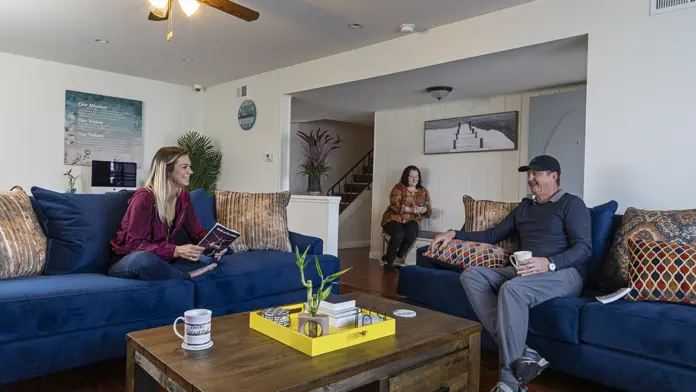
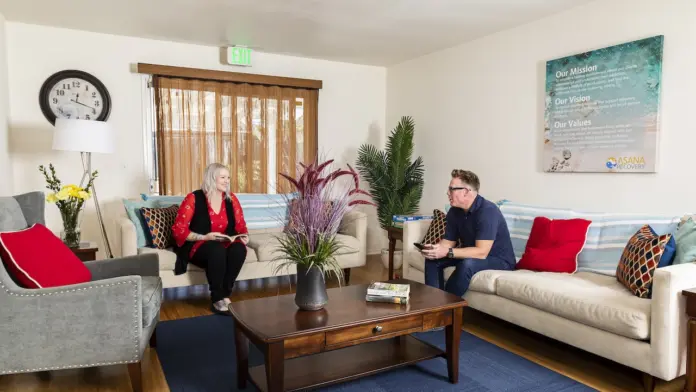

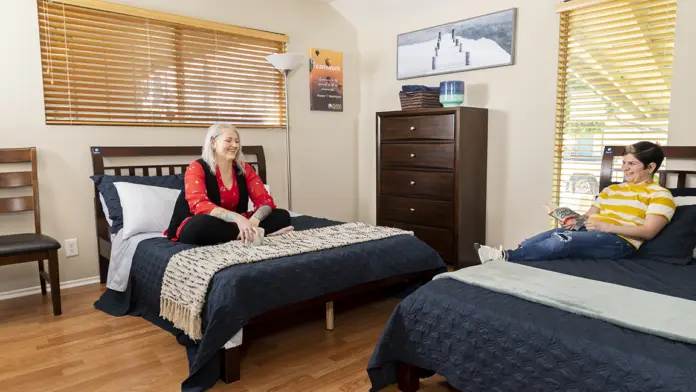
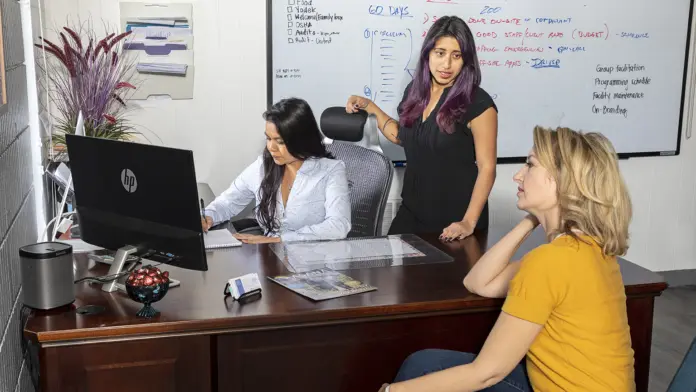

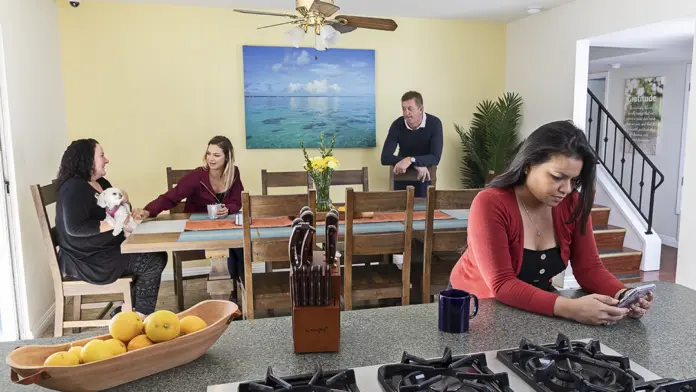
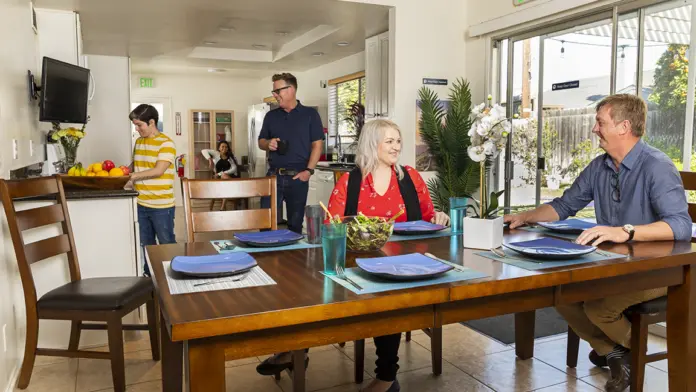
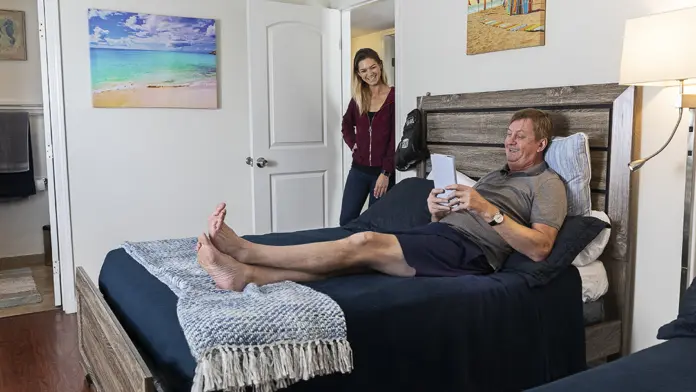
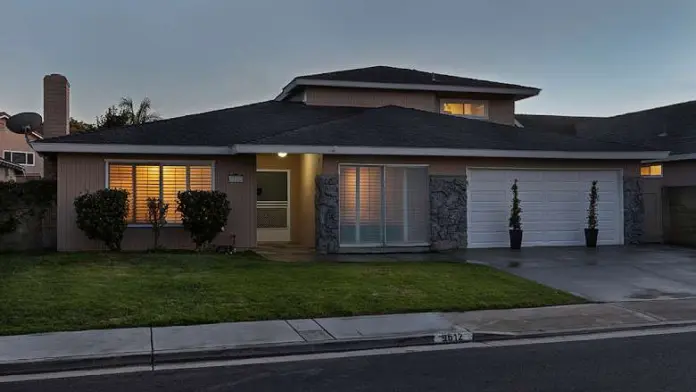
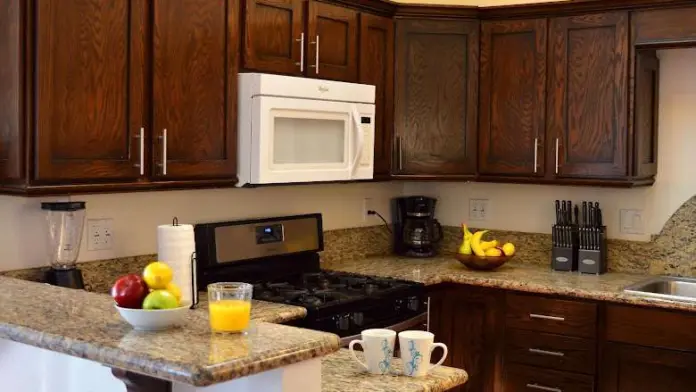
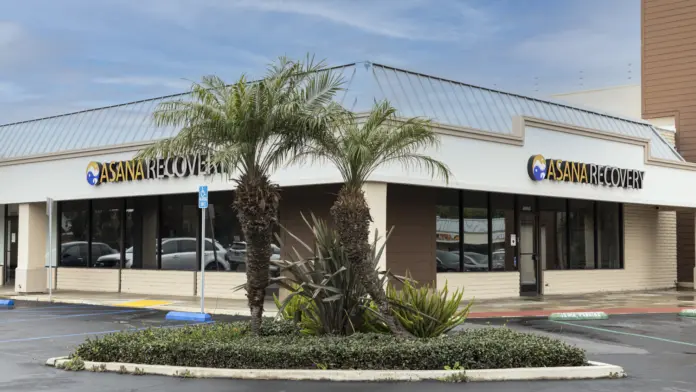
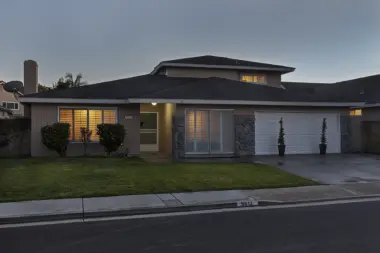
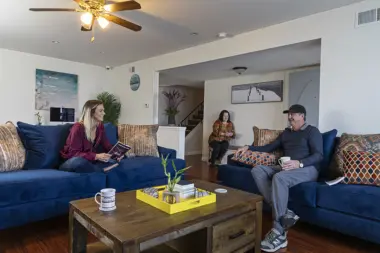
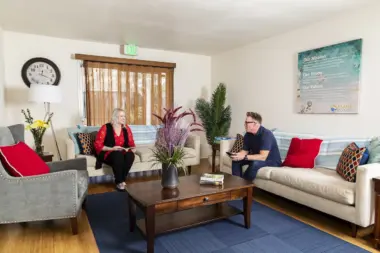

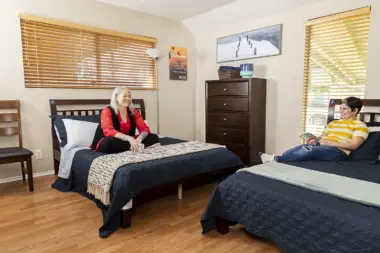
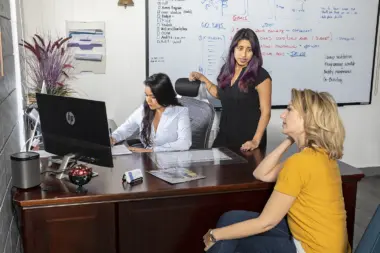

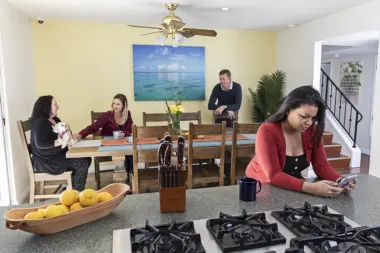
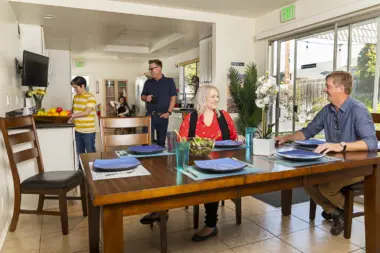
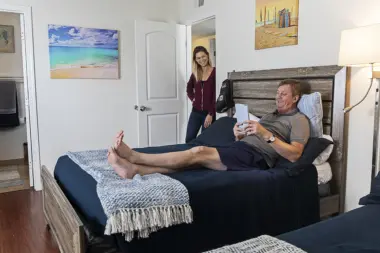
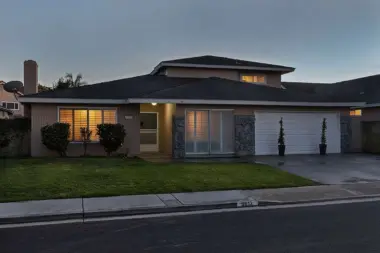
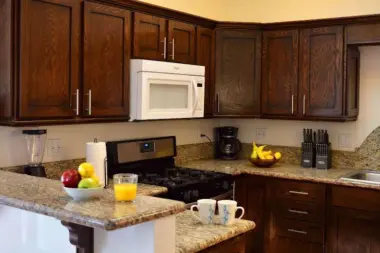
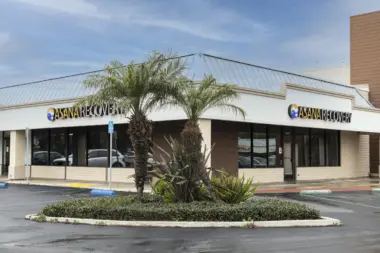
Accepted Insurance


















Other Forms of Payment
Private insurance refers to any kind of healthcare coverage that isn't from the state or federal government. This includes individual and family plans offered by an employer or purchased from the Insurance Marketplace. Every plan will have different requirements and out of pocket costs so be sure to get the full details before you start treatment.
Self-pay involves paying for treatment out of your own pocket. You can use savings or credit, get a personal loan, or receive help from family and friends to fund your treatment. If you don't have insurance or your insurance plan doesn't cover a specific program, self-pay can help ensure you still get the care you need.
Sliding scale payments are based on a client's income and family size. The goal is to make treatment affordable to everyone. By taking these factors into account, addiction recovery care providers help ensure that your treatment does not become a financial burden to you or your family, eliminating one barrier to care.
Financing your treatment can make treatment more accessible. You'll work with your care provider to set up payment plans, including interest rates and repayment timelines. Financing options vary widely and not all programs offer them, so be sure to get the full details before enrolling in treatment. If you have insurance or other benefits, financing may help you cover your remaining out of pocket expenses.
Addiction Treatments
Levels of Care
At Asana Recovery our Outpatient Program offers a variety of flexible treatment options to fit individual needs, through our Partial Hospitalization Program (PHP), Intensive Outpatient Program (IOP) and Virtual IOP for Californians. This program is for those transitioning from inpatient or who need structured support while maintaining independence. PHP is 5 days a week for 6 hours a day. IOP is 3-5 days a week for 3 hours a session. Virtual IOP is the same intensity as IOP but allows patients to participate remotely, for those who can’t attend in person. These outpatient services help patients continue their progress in recovery while balancing treatment with their daily responsibilities. The program includes therapy, support groups and personalized relapse prevention strategies so patients have a strong foundation for long term recovery.
Our inpatient program provides 24/7 support in a safe and supportive environment for those who need intense treatment for addiction and co-occurring mental health issues. Patients live on site and receive individual therapy, group counseling and holistic treatments like yoga and meditation. Program length varies but is typically 30-90 days. Our inpatient program gets to the root of addiction so patients can build a strong foundation for long term sobriety.
Intensive outpatient programs (IOP) involve frequent and robust therapeutic sessions for clients requiring high-level care. Clients may engage in a combination of medication assisted treatment (MAT), addiction counseling, recovery skills training, and holistic therapies for a minimum of nine and a maximum of 20 hours per week. Intensive outpatient rehab is designed primarily for persons in early recovery, those exiting detox or inpatient care, and those at an elevated relapse risk.
Rehab aftercare programs offer clients in addiction recovery a robust continuum of care after clients have completed active treatment. These services address recovery as a life-long process and are designed to evolve with clients' changing needs. Clients may partner with their case managers and/or addiction recovery team to identify the rehab aftercare services that are right for them. They may receive career counseling, housing assistance, peer coaching, 12 step program induction, among many other services.
Participants engaged in 12 step programs receive intensive peer coaching (sponsorship) and community support. Spiritual development as a means of achieving psychological and emotional healing and growth is the cornerstone of 12 step recovery, but religious affiliations are not required. Meetings are free, anonymous, and open to the public, though specialized formats are available, including groups for seniors, teens, and family members. Evening, night, and day meetings are conducted year-round in most communities.
A partial hospitalization program (PHP) is a short-term form of intensive rehab, usually for those with acute symptoms that are hard to manage but don’t require 24-hour care. PHPs have structured programming (i.e. individual and/or group therapy), and usually meet 3-5 days a week for around 6 hours (i.e. 9am-3m). Some PHPs are residential (patients sleep on site) and some are not, so patients sleep at home. PHPs can last from 1-6 months, and some offer transportation and meals.
During the first phase of recovery – detox – it is crucial to have 24-hour clinical care in California. This care provides constant monitoring in order to ensure your safely and comfort as you progress through the withdrawal process for drug or alcohol addiction. Licensed professionals prescribe medications to treat withdrawal symptoms and provide frequent monitoring to ensure your safely as addictive toxins leave your system.
Detox is the first step in recovery and at Asana Recovery we offer medically supervised detox so patients can safely manage withdrawal symptoms. Our detox program is individualized to each patient’s needs with 24/7 medical care to monitor progress and provide necessary medications including Medication-Assisted Treatment (MAT) when needed. Detox typically takes 5-7 days depending on the substance and severity of withdrawal symptoms. The goal is to stabilize patients and get them ready for the next phase of their recovery.
Sober living homes in California offers an intermediate sober environment that has less structure than inpatient rehab but more than typical home environments. This makes it a good option for those who have concerns about transitioning back to the "real world" after treatment. Residents can typically live at the halfway house as long as they want, if they are willing to follow house rules. These may include a curfew, chores, and maintaining a job.
Treatments
At Asana Recovery we offer a full treatment program for alcoholism that addresses the physical and psychological addiction. Our approach starts with medically supervised detox then personalized care to break the cycle of alcohol dependence. Through individualized treatment plans we support long term recovery so every patient has the tools to rebuild their life. We will be with you every step of the way including aftercare planning and resources to help you get back into daily life, to a sustainable way of sobriety.
Drug addiction comes in many forms and at Asana Recovery we treat a wide range of substance use disorders. From detox to ongoing recovery support our drug addiction program is designed to meet the individual needs of each patient. Our approach addresses the immediate challenges of withdrawal and the long term strategies for maintaining sobriety. With a focus on helping patients get back in control of their lives we offer job readiness programs, life skills training and personalized relapse prevention plans to get you back into society after treatment.
For patients with addiction and co-occurring mental health disorders Asana Recovery offers a dual diagnosis program that treats both conditions at the same time. We know that treating the underlying mental health issues along with the addiction is key to long term recovery. Our integrated approach means patients receive the full care they need to manage their substance use and mental health. By focusing on whole person healing and long term wellness we help patients get stable and stay sober, beyond treatment.
Opioid addiction requires specialized care due to the physical and psychological dependence these substances create. At Asana Recovery our opioid addiction program includes medically supervised detox and full treatment to help patients overcome their addiction and rebuild their life. We offer individualized care to those struggling with opioids and a path to recovery that addresses both short term and long term success. We will be with you every step of the way and aftercare to ensure you have a solid foundation for sobriety and to get back into your community.
At Asana Recovery we know addiction and mental health are connected. Our treatment for co-occurring mental health and substance abuse is built around a whole person approach that combines medical care with evidence based therapies. We treat anxiety, depression, PTSD, bipolar disorder and substance use, so all aspects of a patient’s well being are addressed. Our therapy programs include individual counseling, Cognitive Behavioral Therapy (CBT) and mindfulness practices to promote emotional and mental healing. By addressing the underlying causes of addiction and mental health we give patients the tools for long term recovery and overall wellness.
Inpatient treatment for drug and alcohol addiction with a focus on mental health is a good fit for people who need closer monitoring and care. Treatment may occur in a hospital setting, a clinic, or a luxury rehab center. Mental health counselors and staff are available 24/7. Therapies typically include group and individual counseling, relapse prevention education, and emotional coping skills training.
Programs
Adult rehab programs include therapies tailored to each client's specific needs, goals, and recovery progress. They are tailored to the specific challenges adult clients may face, including family and work pressures and commitments. From inpatient and residential treatment to various levels of outpatient services, there are many options available. Some facilities also help adults work through co-occurring conditions, like anxiety, that can accompany addiction.
Young adulthood can be an exciting, yet difficult, time of transition. Individuals in their late teens to mid-20s face unique stressors related to school, jobs, families, and social circles, which can lead to a rise in substance use. Rehab centers with dedicated young adult programs will include activities and amenities that cater to this age group, with an emphasis on specialized counseling, peer socialization, and ongoing aftercare.
Clinical Services
At Asana Recovery CBT is at the core of our treatment. CBT helps patients become aware of and change the negative thoughts that drive addiction. Our therapists teach patients how to manage cravings, stress and triggers. The focus is on preventing relapse and long term recovery by having patients monitor their emotions and rewire their thinking.
Dialectical Behavior Therapy (DBT) at Asana Recovery is for patients with addiction and co-occurring mental health issues like borderline personality disorder. DBT combines mindfulness with cognitive-behavioral techniques to help patients manage intense emotions, reduce impulsivity and improve emotional regulation. Our DBT program helps patients build healthier relationships and cope with tough situations without using substances.
Group Therapy at Asana Recovery builds community and mutual support among patients. Led by licensed therapists, our sessions allow patients to share experiences, challenges and successes. Group therapy reduces isolation and promotes accountability. Research shows group therapy is effective in addiction recovery as it helps collective healing and long term success.
Individual Therapy at Asana Recovery is part of our personalized treatment. One on one sessions with a licensed therapist allow patients to explore the underlying issues behind their addiction, including trauma or co-occurring mental health disorders. Our therapists tailor sessions to each patient’s needs, helping them build skills for long term recovery. This focused approach helps patients reflect and grow, change meaningfully.
Trauma Therapy is a big part of Asana Recovery as many patients have experienced significant trauma. Our trauma informed care includes therapies like EMDR and DBT to help patients process and heal from past trauma. In a safe and supportive environment patients can break free from trauma’s grip and move forward in recovery. Addressing trauma is key to preventing relapse and long term healing.
Couples Therapy is part of our program at Asana Recovery. Addiction affects both partners and our therapy helps rebuild trust, communication and a recovery environment. By addressing codependency and enabling behaviors we help couples heal and strengthen their relationship. Research shows that couples therapy can reduce substance use and improve relationship satisfaction making it an essential part of recovery.
At Asana Recovery EMDR is used to help patients heal from trauma that drives their addiction. EMDR therapy uses guided eye movements to desensitize traumatic memories, help the brain reprocess those experiences. It’s especially effective for patients with PTSD or trauma related conditions to move forward in recovery without the weight of unresolved trauma.
Family therapy offers a platform for members to have an open dialogue about the challenges that addiction has placed on the family unit. Through guided sessions, therapists can help families develop healthy communication skills and address unresolved issues. By working together toward a common goal, they help to support their loved one's sobriety.
At Asana Recovery recovery goes beyond addiction treatment—it’s about living a full life. Our Life Skills program teaches patients practical tools for success from managing finances to healthy habits and communication. By focusing on life skills we help patients regain confidence and prepare for life after treatment, so they can succeed in recovery long term.
The goal of creative arts therapy in California is to encourage growth and transformation. It can be used in individual and group settings with both children and adults. Options include movement, music, and painting.
Experiential Therapy at Asana Recovery allows patients to work through emotions through creative activities. This type of therapy can include art, music, role-playing or outdoor activities, to process emotions that traditional talk therapy can’t reach. Experiential Therapy helps patients discover themselves and heal, in conjunction with other therapies and for long term recovery.
Fitness therapy for addiction recovery focuses on creating a balanced lifestyle using physical activity to improve mental and emotional health and stability. When you participate in regular exercise, you develop a positive outlet for stress and anxiety, which helps to prevent relapse and maintain long term sobriety.
Recreational therapy is included in alcohol and drug addiction treatment to focus on engaging you in healthy activities that reduce your cravings and improve your overall health and well being. When you participate in group sports, art, or nature walks, you develop new interests and find a meaningful way to spend your time and reduce your cravings.
Amenities
-
Residential Setting
-
Private Rooms
-
Beach Setting
-
Pet Friendly
-
WiFi
-
Gym
Staff & Accreditations
Staff

Mark Shandrow, BA
CEO

Adam Shandrow
COO

Yesenia Nicols, BA
VP, Clinical and Operations Management
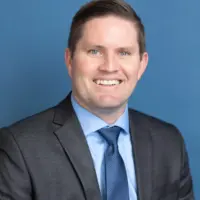
Jonathon Hagen, CADC-II
Executive Director
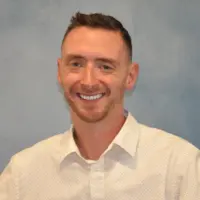
Cody Crawford, CADC-II
Director of Admissions

Chris Small, M.D., Ph.D, DR
Medical Director
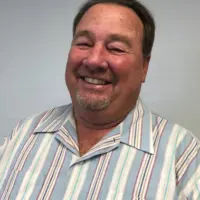
Grant Clark, LCSW
Clinical Director
Accreditations

LegitScript has reviewed Asana Recovery: Drug & Alcohol Rehab In California as part of their certification program, and has determined that it meets the LegitScript standards for legality, safety and transparency.
LegitScript verified in May 2020

State Licenses are permits issued by government agencies that allow rehab organizations to conduct business legally within a certain geographical area. Typically, the kind of program a rehab facility offers, along with its physical location, determines which licenses are required to operate legally.
State License: California
License Number: 300043AP

The Joint Commission, formerly known as JCAHO, is a nonprofit organization that accredits rehab organizations and programs. Founded in 1951, the Joint Commision's mission is to improve the quality of patient care and demonstrating the quality of patient care.
Joint Commission Accreditation: Yes

The National Association of Addiction Treatment Providers (NAATP) is a professional association that represents organizations in the field of addiction services. Founded in 1978, NAATP's mission is to advance addiction services and ensure that high-quality addiction treatment is available and accessible.
NAATP Member: Yes
